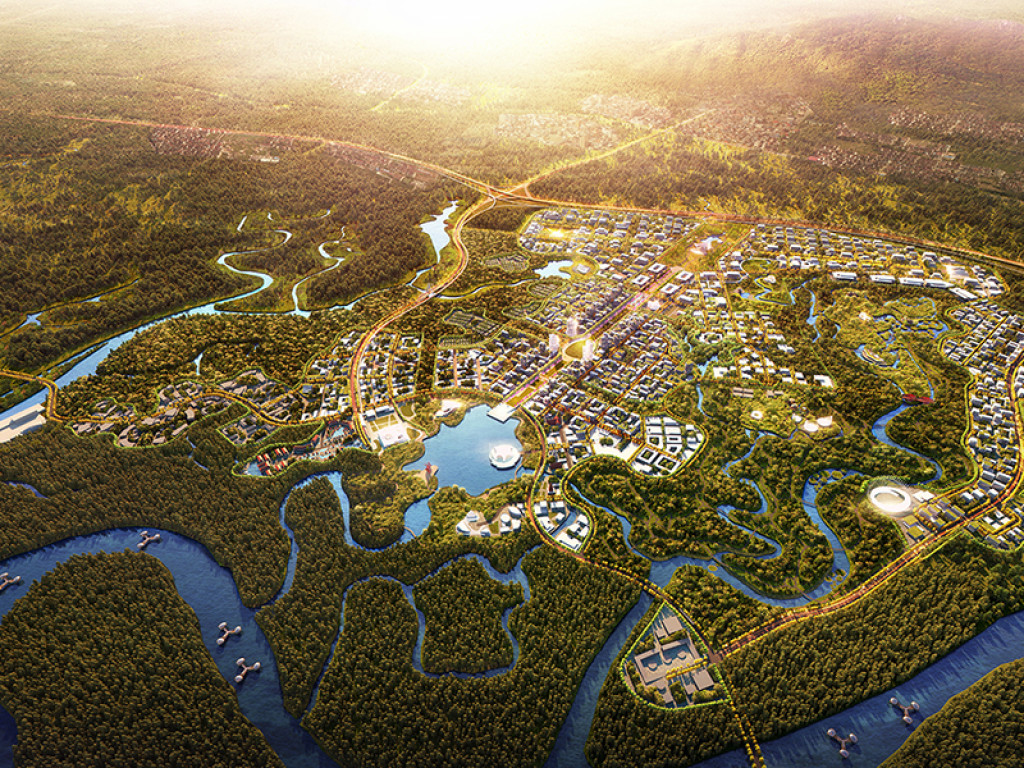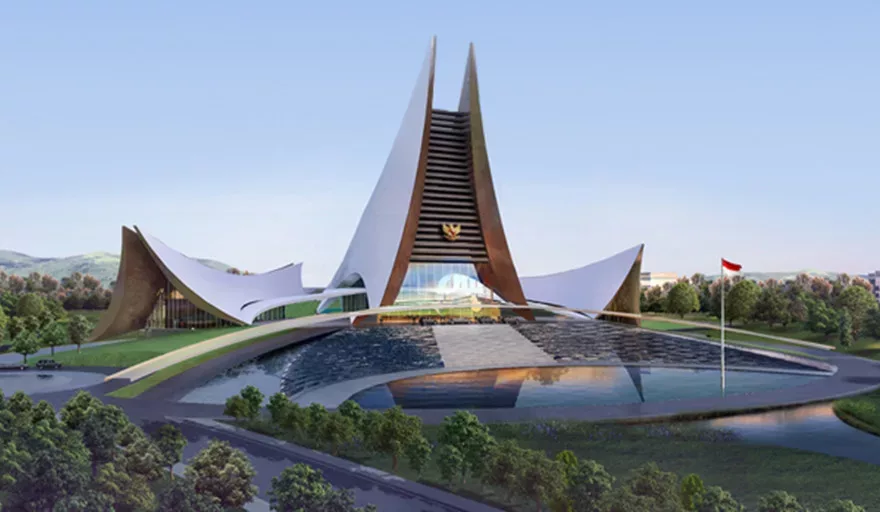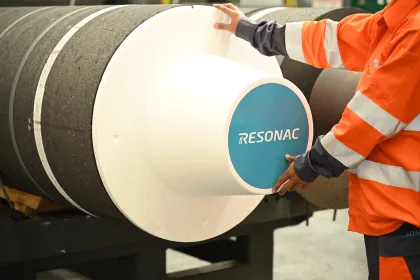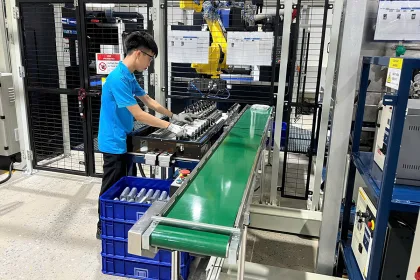Jakarta is being replaced as Indonesia’s capital city by Nusantara, an ambitious, green and futuristic project.
INDONESIA’S CAPITAL UPGRADE UNDERWAY
It’s not often that a nation simply builds a new capital.
However, in the case of Jakarta, Indonesia’s current capital city since 1945, it’s a vital and long overdue transfer. Indonesia, comfortably Southeast Asia’s most populous nation, is switching its capital from one of its islands to another in a vastly ambitious and enthralling project. Nusantara is the name of this new ‘green super city’.
On the east coast of Borneo, Balikpapan, there are currently only trees stretching out as far as the eye can see. Vast expanses of eucalyptus plantations span to the horizon, except from one small, cleared path of brown earth where a new road is being meticulously constructed. This marks the spot of inception for this project, where the grand presidential palace will one day sit right in the heart of Nusantara, Indonesia’s new ‘super city’ capital.
Jakarta is a dense city that is collapsing slowly under the weight of its own sprawling infrastructure, as well as suffering from near critical levels of pollution and water damage.
Notoriously congested, Jakarta is home to 30 million people; it’s a packed city that has undergone decades of rapid urbanisation, leaving the foundations crumbling and creaking under the immense pressure from this exponential development. Water poses the greatest threat to Jakarta in its current location; the gradually sinking capital is speedily descending faster than any other city worldwide, whilst sea levels continue to rise. Jakarta suffers from torrential rain for over half the year, leading to constant flooding and an overwhelming of all the city’s drainage systems.
A further difficult issue facing the city is the fact that only a third of residents have access to municipal water, forcing the rest to drill wells for potable groundwater.
The slowly sinking city is moving from the island Java across to the East Kalimantan Province in Borneo. The ground-breaking master plan is that Nusantara, the brand-new capital, will be a green and smart global ‘super hub’ developed steadily in carefully implemented stages until planned completion in 2045. The new city has a futuristic design, and the plans depict a well-connected hub with modern public transport links, powered by renewable energy, which will eventually seat the majority of Indonesia’s government. A new airport located in Penajam, will serve as the primary international airport to Nusantara.
The Indonesian government hopes this transition will help to create numerous job opportunities in Nusantara, as well as increasing the nation’s economic growth and benefitting all economic activity. Indonesia has lofty ambitions to join the ranks of developed nations, and to achieve the zero-carbon pledge by 2060 made last year.
ENVIRONMENTAL CONCERNS RAISED
There are some, however, who remain highly sceptical of the project. Many environmentalists are doubtful whether developers will be able to achieve these ambitious plans.
Nusantara will be constructed on completely cleared land, yet there remain concerns that this project will bring an increased level of pollution across East Kalimantan.
Environmentalists have also voiced apprehension that the building process will contribute to the destruction of rainforests that are home to many species of wildlife such as orangutans, sun bears and long-nosed monkeys.
A petition was recently posted online to reject the plan and has been signed by 26,000 people. Petitioners believe this is not the right time to move Indonesia’s capital, citing economic hardship and rising government debt as a result of the COVID-19 pandemic, as well as concerns over a new wave of positive cases, driven by the Omicron variant.
There is currently a series of ongoing conferences and events to begin dialogue with both public and private Indonesian stakeholders, that will form a thorough discussion on how Nusantara can create a new narrative for Asia’s cities. These mostly virtual conferences are also addressing what needs to be done to ensure the new capital can balance economic growth with environmental integrity, as set out in its mandate.
AMBITIONS FOR THE FUTURE
President Joko Widodo has ambitious aspirations for his proud nation and has set his sights firmly on becoming one of the world’s top five economies by 2045, with the aid of his new green capital city.
The president plans to use Nusantara as a showcase of this transformation, in terms of the environment, ways of work, economic basis, technology, and as a demonstration of improved-quality health services and education.
He has labelled the construction of Nusantara with a hefty price tag of US$32.5 billion and hopes it will emerge as a “magnet for global talent and a centre of innovation”. Whether this ultimately materialises will be hinged on how well the new city can become the smart, green hub it promises to be.






















